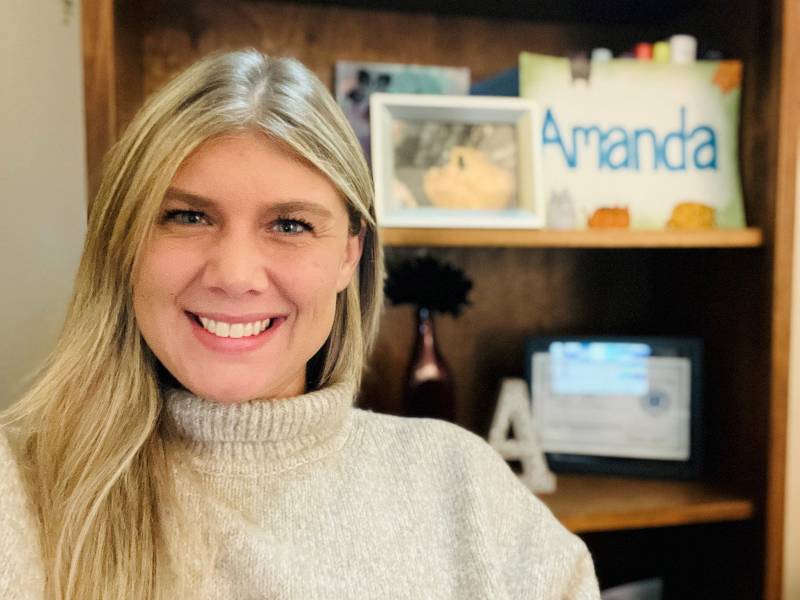Amanda Willett Joins School of Veterinary Medicine as Wellness Director
Maintaining mental health in a veterinary medicine program can be a challenge. On top of long hours, demanding courses, and school loans, the reality of working with animals in need of medical care often takes a heavy toll on students. As a result, even the most dedicated would-be veterinarians often find themselves feeling isolated and overwhelmed.
Fortunately, at Utah State University, students in the School of Veterinary Medicine don’t have to go it alone. Amanda Willett is a certified social worker with a Master’s Degree in Social Work and Public Health from the University of Illinois in Chicago, and as the program’s next director of wellness, she works to ensure that all veterinary medicine students have the resources they need to face the mental and emotional hurdles of earning their DVM.
Services offered by Willett include individual and couple’s therapy; life skills coaching; interactive workshops on professional, emotional, and social skill-building; consultations for students, staff, and faculty looking to support other students in distress; and informal meetings for students who just need someone to listen.

“Students can expect a person-centered approach to the services I provide,” said Willett. “What that looks like is the individual is in charge of how they want to use our time together. I see myself more as a guide and educator to help people make their own connections, meanings, conclusions, and action plans so that students can make the best decisions for themselves.”
In the case of students in the DVM program, that means helping them cope with issues like anxiety, depression, and burnout.
“Veterinary medicine tends to attract empathic, compassionate, and perfectionistic individuals,” said Willett. “Those are great strengths, but those qualities can also lead to mental and emotional fatigue if not kept in check, and it can end up carrying over into their professional lives.”
However, while a veterinary medicine program creates unique challenges for the students, it also provides a chance for someone like Willett to help more people than they could elsewhere.
“Generally speaking, I really enjoy the university setting,” said Willett. “There is so much opportunity to intervene beyond the individual level and create an optimal environment for students to thrive.”
The fact that USU recognized the School of Veterinary Medicine’s need for an embedded therapist also appealed to Willett.
“I was drawn to the wellness director position because I greatly appreciate a university that is willing to tend to the specific needs of a particular population and prioritize mental health.”
In her free time, Willett volunteers with Citizens Against Physical and Sexual Abuse (CAPSA), a local non-profit that supports people impacted by domestic violence and sexual abuse. She responds to hospital calls involving sexual assault and helps survivors to understand their options in the wake of trauma. Her work with CAPSA also puts Willett in a better position to support student survivors.
Willett also has animals in her own life.
“I love animals, especially cats,” Willett said. “I have three — Venus, Aries, and Luna — that I am maybe too obsessed with, so I am excited to support people that care for animals.”

